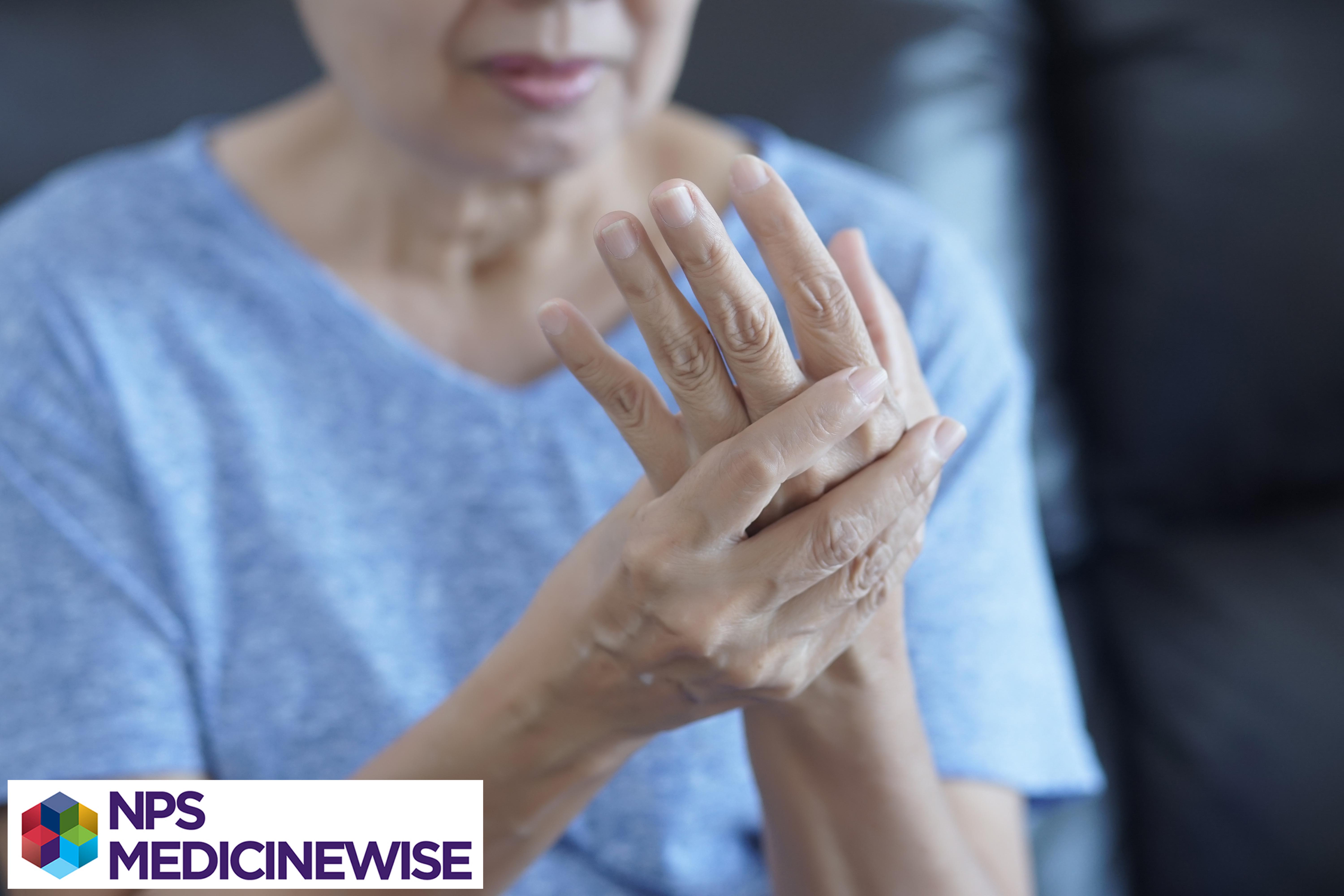With more than two million Australians estimated to have osteoarthritis, NPS MedicineWise reveals its top five tips to help manage and reduce the pain caused by the condition.
Osteoarthritis is one of the most chronic joint conditions in Australia. NPS MedicineWise medical adviser, Dr Jill Thistlethwaite says that a growing body of research confirms managing osteoarthritis should not focus exclusively on medicines, and imaging — such as X-ray and MRI— as it is not necessary in most cases for diagnosis and ongoing management.
“Osteoarthritis causes pain, loss of mobility and impacts quality of life. Some people rely on opioids for managing pain, which are not likely to be useful, but other medicines will have a role to play, including topical gels and creams. Patients should also focus on non-pharmacological management options,” said Dr Thistlethwaite.
To help people with osteoarthritis stay in control and better manage their health, Dr Thistlethwaite recommends learning and implementing techniques that help to manage pain, prevent or delay complications, maintain function and improve quality of life.
“We encourage people to take an active role in their management of osteoarthritis through speaking to their health professional about self-management programs. These include strategies such as: activity and exercise, diet, pain management, life balance, joint protection and emotional support.”
Here are Dr Thistlethwaite’s top five tips to help people with osteoarthritis reduce the impact of this condition on their daily lives.
- Manage your weight
By maintaining a healthy weight, you can help prevent osteoarthritis from getting worse as well as lessen pain and disability. If you are overweight then small amounts of weight loss are shown to be beneficial. You may have noticed that carrying heavy items such as shopping makes your joints more painful – excess body weight has a similar effect. For every kilogram of body weight lost, there is up to a four kilogram reduction in the load exerted on the knee.
- Be active
Many people are nervous that regular exercise might make their condition worse, but in fact exercise has proven to be one of the most effective treatments for arthritis. It can help decrease pain, fatigue and stress, and improve mobility and flexibility of joints. The best forms of exercise are low-impact options such as walking, water activities, Tai Chi, pilates, cycling and dancing. Muscle strengthening exercises are also helpful.
- Try mindfulness activities
Mindfulness activities, such as meditation, have been shown to lessen arthritis pain. Changing your thoughts about pain can change how your body responds to pain. Psychological approaches such as cognitive behaviour therapy (CBT) and hypnotherapy can be useful in improving pain management.
- Balance your life
Careful planning and organisation of activities throughout the day can help you make the most of your energy. Some simple tips include:
- Try to plan your day so that you can switch between periods of activity and periods of rest.
- When you know you have a large task to do, such as preparing a meal or cleaning a room, plan ahead and break the job into smaller tasks. Then work on completing the tasks one at a time, and follow each with a rest break.
- Try to prioritise jobs. Do the hardest jobs when you are feeling your best.
- Protect your joints
Many gadgets and aids can make your daily activities simpler and less tiring if your hands are affected. These aim to protect your joints by reducing the effort you have to put in. Examples include:
- ergonomic knives to make cutting and slicing easier
- adapted cutlery and cooking utensils to allow easy gripping
- equipment to help with opening jars or bottles, and turning on taps.
For more information, please visit the Managing Osteoarthritis information page available on the NPS MedicineWise website at https://www.nps.org.au/medical-info/consumer-info/managing-osteoarthritis.
Got a question about your medicines?
Call Medicines Line on 1300 633 424 (1300 MEDICINE) to speak with a health professional Monday to Friday 9am to 5pm AEST (excluding NSW public holidays).



































